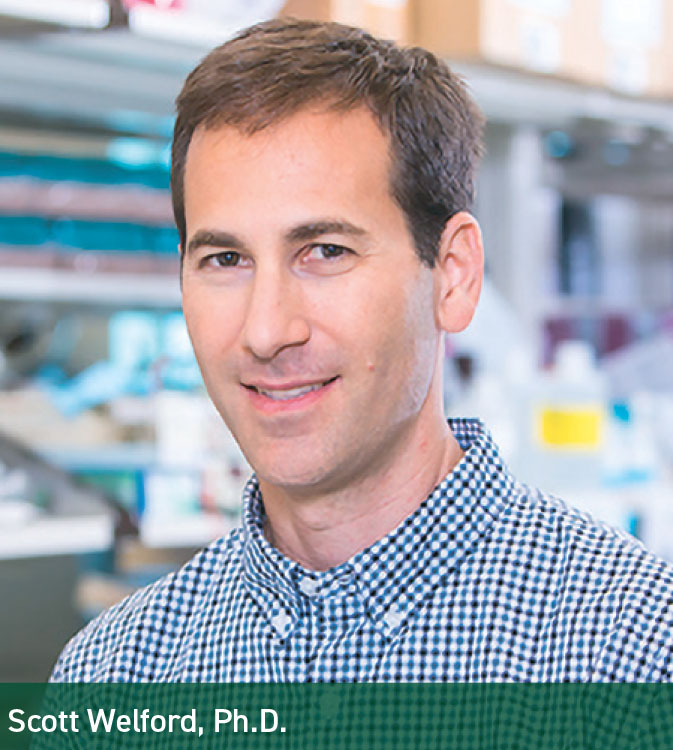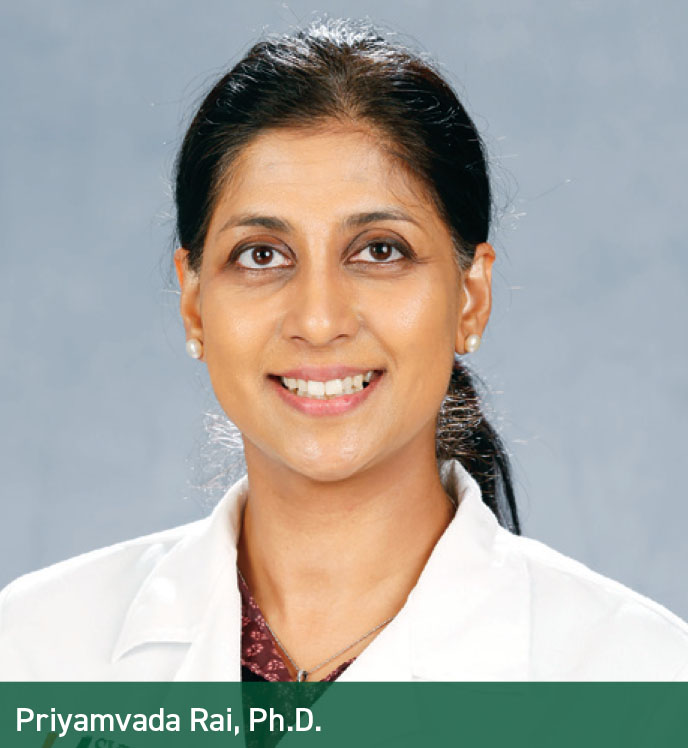The researchers aim to create a collaborative space to better understand cellular functions.

Scott M. Welford, Ph.D., and Dr. Priyamvada Rai are the new Tumor Biology Research Program co-leaders at Sylvester Comprehensive Cancer Center at the University of Miami Miller School of Medicine, together with Wael El-Rifai, M.D., Ph.D., associate director of basic science and John and Judy Schulte Senior Endowed Chair in Cancer Research.
In their roles, Drs. Rai and Welford will boost interactions and collaborations among Sylvester’s researchers to better understand how cancer cells behave — a critical step for developing therapeutic approaches that benefit patients in South Florida and beyond, according to Dr. El-Rifai.
A cancer biologist by training, Dr. Welford is also a professor and Biology Division chief in radiation oncology at Sylvester. He completed a post-doctoral fellowship in radiation oncology at Stanford University and started a career as a cancer center faculty member about 15 years ago at Case Western Reserve University School of Medicine, where he said he gravitated toward translational cancer biology.

Dr. Rai, professor of radiation oncology and director of the Medical School Summer Undergraduate Research Fellowship (SURF) Program, joined the Miller School in 2008. She has been involved with Sylvester’s Tumor Biology Program in the past. In 2017, she was an Aim leader for the Mechanisms of Tumor Initiation and Progression component of the program, assisting program leaders with this specific aim of the original Cancer Center Support Grant for National Cancer Institute (NCI)-designated Cancer Centers.
Sylvester’s Tumor Biology Research Program is one of four highly collaborative, multidisciplinary research programs at Sylvester organized by scientific themes, which stem from the cancer center’s strengths and priorities, as well as prevalent malignancies within South Florida's culturally diverse population.
The program focuses on cellular interactions of tumors. This includes defining and understanding mechanisms underlying tumor initiation and progression; determining how inflammation and immunity influence tumorigenesis and the tumor microenvironment; and identifying and validating biological and molecular-based therapeutic approaches to cancer.